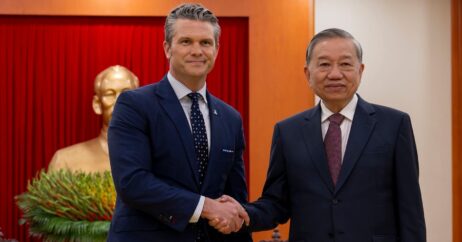Jakarta – Minister of Maritime Affairs and Investment Coordination, Luhut Binsar Pandjaitan, has announced the formation of a dedicated team tasked with advancing the Jakarta-Surabaya high-speed train project. Shedding light on this development, transport analyst from the Indonesian Transportation Society (MTI), Deddy Herlambang, shared his perspective on the proposed extension of the Jakarta-Bandung high-speed train project.
According to Herlambang, the Jakarta-Surabaya high-speed train venture holds promise for greater success compared to its Jakarta-Bandung counterpart, which is presently operational. He argued that high-speed rail systems are inherently more suited for extensive journeys, ideally exceeding the 800-kilometer mark.
“The Halim-Tegalluar high-speed train route (Jakarta-Bandung) spans merely 147 kilometers,” he remarked during a recent interview conducted on Wednesday, April 24, 2024.
Herlambang further contended that constructing high-speed rail networks covering distances below 800 kilometers could lead to financial losses for the nation. He cited cost considerations as a primary factor contributing to the perceived unprofitability of the Jakarta-Bandung high-speed train project.
“For distances ranging from 100 to 200 kilometers, such as the route to Bandung, the primary user segment consists of individuals who prefer traveling by car or utilizing toll roads,” he elaborated. Given these shorter distances, Herlambang anticipated a comparatively lower occupancy rate for high-speed trains.
Moreover, he expressed skepticism regarding the feasibility of high-speed train operations for distances between 400 to 500 kilometers. Herlambang emphasized the potential market disruption that could arise from deploying high-speed trains covering distances below 800 kilometers, particularly in the inter-provincial long-distance bus sector.
“Long-distance bus services predominantly cater to travelers journeying over distances of 400 to 500 kilometers, such as those traveling from Jakarta to Semarang, Yogyakarta, or Solo,” he added.
Additionally, Herlambang underscored the potential benefits of extending the Jakarta-Bandung high-speed train project, particularly in alleviating air travel congestion between Jakarta and Surabaya. However, he stressed the necessity of state capital participation (PMN) to ensure the financial stability of state-owned enterprises (SOEs), given the projected profitability timeline of the Jakarta-Surabaya high-speed train project, estimated to span at least 30 years.









